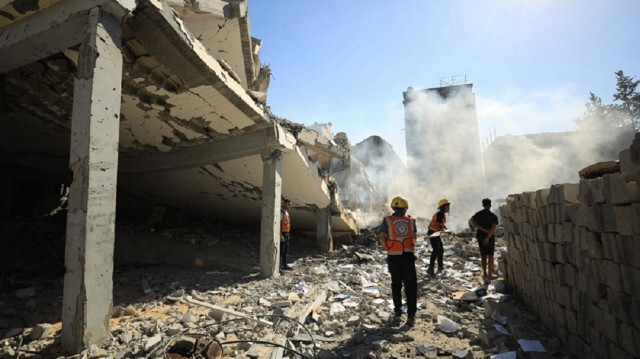EU Foreign Policy Turmoil: Hungary's Controversial Stand
The European Union faces internal strife as Hungary's foreign policy choices regarding Ukraine provoke ire and raise concerns about EU cohesion.
Published July 24, 2024 - 00:07am

Image recovered from myjoyonline.com
The European Union's foreign policy chief, Josep Borrell, has stripped Hungary of the right to host the next meeting of foreign and defence ministers due to its stance on the war in Ukraine. This decision comes in the wake of Hungarian Prime Minister Viktor Orban's controversial meeting with Russian President Vladimir Putin in Moscow, which has stoked tensions within the EU.
Borrell announced that the scheduled meeting on 28-30 August will now take place in Brussels instead of Budapest. He emphasized that Hungary's actions warrant consequences, describing the relocation as a symbolic measure to signal dissatisfaction with Hungary's foreign policy. Hungary decried the move as 'completely childish,' while 26 other EU member states, with only Slovakia supporting Hungary, criticized the Hungarian stance.
Borrell further pointed out that the EU countries were unable to reach an agreement to unlock funds for weapons shipped to Kyiv, primarily due to Hungary's veto. He expressed frustration over this impasse, stressing that the blocked European Peace Facility money impedes the capacity of member states to continue their military support for Ukraine.
Prime Minister Viktor Orban's recent diplomatic visits to Moscow, Beijing, and former U.S. President Donald Trump's residence have compounded the rift. Many EU leaders, including the Finnish Prime Minister Petteri Orpo and Swedish Prime Minister Ulf Kristersson, condemned Orban's actions. Ursula von der Leyen, the European Commission chief, described these trips as 'nothing but an appeasement mission.'
Despite the criticism, Luxembourg's Foreign Minister Xavier Bettel opposed the boycott, preferring direct dialogue with Hungary. Slovakia's Foreign Minister also backed Hungary, reflecting a minority view within the EU. This internal division was highlighted by Luxembourg's Bettel, who argued that boycotting Budapest would be counterproductive.
The European Parliament has previously passed resolutions questioning Hungary's adherence to EU values and rule of law, exacerbating concerns over its ability to lead as the Council's president. Orban's 'peace mission,' viewed by many as an attempt to exploit Hungary's presidency for personal diplomatic gains, has led some member states to contemplate suspending Hungary's presidency altogether.
EU members Poland, Germany, France, and others criticized Orban's outreach for lacking the mandate to represent the entire EU. Former Estonian Prime Minister Kaja Kallas stressed that Orban's actions were purely bilateral and did not reflect the EU's collective stance.
Internally, Slovakia's Defence Minister Robert Kalinak underscored his country's controversial position by pushing for increased ammunition production while maintaining that Slovak-made shells ending up in Ukraine do not contradict official policy. This highlights the complex web of individual member states' policies and the broader EU stance.
The situation has resulted in the EU contemplating various responses, including political boycotts and possible suspension of Hungary's council presidency. This internal discord within the bloc raises questions about the long-term unity and functionality of the EU, especially in its approach to the Ukrainian conflict and relations with Russia.
Reflecting broader European shifts, the rise of far-right political parties suggests that Orban's isolation among EU elites does not mirror public sentiment. With Trump's potential re-election, Budapest might further embolden its stance, potentially shifting the balance of power within the EU.
The European Commission's decision to boycott informal meetings during Hungary's presidency has been criticized by some as an electoral move supporting Ursula von der Leyen's candidacy. Meanwhile, EU leaders continue to debate the best course of action to manage Hungary's controversial policies, aiming to preserve the EU's integrity and unity.
Overall, Hungary's diplomatic maneuvers have exposed fissures within the EU, challenging its cohesion and response to the ongoing conflict in Ukraine. The upcoming months will be crucial in determining how the EU navigates these internal tensions and whether it can present a united front on the global stage.






